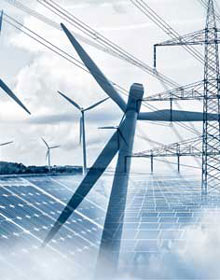
In a unified stand against the National Energy Regulator of South Africa's (NERSA) decision to implement a 40% electricity tariff increase effective from April 1, 2025, the Democratic Alliance (DA) caucus of local government mayors has launched a concerted opposition. Tuesday marked the beginning of their campaign as they have submitted written objections and foundational arguments to NERSA, signaling their determination to halt what they deem an "outrageous" and "unacceptable" escalation in electricity costs.
The DA mayors argue that the relentless double-digit tariff increases over recent years have already placed a significant burden on South African households. Many citizens have been forced into a dire choice between affording basic necessities such as food and keeping their homes powered. This latest proposed increase, they contend, will exacerbate food poverty levels across the country, pushing more families into financial hardship.
Moreover, the DA warns of a potential adverse economic impact stemming from these unprecedented hikes. They caution that the steep increases could push electricity revenues toward a critical threshold. If residents, overburdened by exorbitant charges, start to significantly reduce their electricity consumption, it could lead to a paradoxical situation where Eskom's revenue declines despite the higher tariffs. Such an outcome would be devastating for local governments, which rely on electricity tariff income to fund essential services.
In response to this crisis, the DA has already called for a parliamentary debate of national importance to scrutinize the methods and rationale behind the annual escalation of electricity costs. They are also considering legal avenues to challenge the legitimacy of the 40% tariff increase, aiming to bring transparency and fairness to the process.
The sentiment of opposition to the tariff hike is not confined to the DA or its mayors. South Africans from various walks of life, spanning cities, villages, towns, and farms, have expressed their discontent. The DA has affirmed its unwavering support for these citizens, vowing to stand by them and not retreat in the face of these challenges.

Adding to the complexity of the situation is the contradictory information provided to the public. While South Africans are told that Eskom is generating surplus power, load reduction—essentially a rebranded form of load shedding—continues to disrupt lives. Amid this backdrop of uncertainty, NERSA's plan to enforce a 36% annual increase, coupled with an additional 4% debt reduction cost, feels like a punitive measure to many. The debt reduction cost is seen as a tax on residents, aimed at recouping Eskom's lost revenue from the previous year.
The DA's resolute opposition to the increase stems from a broader concern that South African households are at risk of being ensnared in a permanent high-cost living environment due to soaring electricity prices. They urge all South Africans to join their cause, emphasizing that the time to act is now to prevent long-term economic damage and ensure that electricity remains affordable for everyone.
In conclusion, the DA's collective action against the NERSA-approved tariff hike underscores a critical moment for South Africa. As the nation grapples with economic challenges and disparities in power supply, the debate over electricity costs has become a central issue. The DA's initiative to oppose the increase not only highlights the immediate financial strain on households but also raises important questions about the sustainability and fairness of the country's energy policies.


Leave a Comment